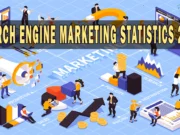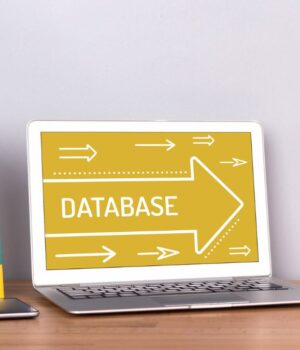A good Content Management System (CMS) should support personalization. We’ve grown used to digital technology, and consumers expect personalized service. Personalization requires a platform that consolidates all customer interactions. This article will look at CMS for personalization and the factors that determine its usefulness. We’ll also discuss Shopify and Joomla. Let’s begin! There’s no reason not to personalize your business website with a CMS!
Look no farther than Sitecore if you’re seeking for a CMS that can assist you in providing tailored consumer experiences. This platform allows you to collect detailed data about your visitors and track their activities, which helps you continuously improve your website experience. Additionally, Sitecore is multilingual and is future-proof. In addition to its personalization capabilities, Sitecore also offers the flexibility to scale as your business grows.
Sitecore
For businesses, Sitecore offers the benefits of a multi-channel customer experience, as well as centralization. Its well-thought-out architecture and capabilities enable you to integrate with other products from different vendors. The software’s C# code makes integration easy and seamless, and it supports various languages and geographies. With Sitecore, you can easily personalize your experience across all channels, which helps build brand equity and boost customer confidence.
Sitecore also supports customization, with over 1,300 classes and 5,000 methods available for developers. It gives advertisers freedom and permits data collection from any location. Sitecore also features a centralized repository and a user-friendly interface. This CMS helps you deliver personalized content across all your sites and languages and is easy to learn. In addition, it’s multi-site, multi-language, and multilingual, making it the perfect choice for a marketing team.
By 2020, most CMSs will include the ability to track website usage analytics.One feature of Sitecore’s CMS, the “path analyzer,” sets it apart from rivals. Web tracking data allows you to see each individual user’s journey on your site. Using this information, you can optimize content to improve customer experience, and highlight products and services based on previous behavior. You can even automate certain moments in the customer journey and optimize specific content based on this information.
Wix
As a content management system (CMS), Wix is an excellent choice for personalization. The Wix drag-and-drop website builder is free and intuitive, and it is easy to customize your site without coding skills. The Wix website maintenance team handles security issues and updates your site for you, and there are no monthly fees to use Wix. Although Wix offers free website creation, it is difficult to move from the service.
In addition to customization, you should also look for a content management system that offers AI-powered scalability and detailed content insights. If your team is limited in time and resources, a flexible CMS will be essential. Wix CMS supports omnichannel content. While you’re at it, make sure you consider your needs as a business owner and consider how many users you plan to include. A flexible CMS will help you scale your content strategy, as well as make your marketing team’s life easier.
For those who don’t have the time or expertise to create custom coding, Wix’s AI-powered platform helps you build a website that suits your needs. This artificial design intelligence learns what people want from a website and what they want. Wix also provides SEO analytics, social tools, and personalized plans based on user preferences. If you’re a novice webmaster, you’ll want to check out Joomla or Wix. Both provide an abundance of sophisticated features that make managing your website simple.
Understanding your audience and how it responds to customized information is crucial when it comes to personalisation. Personalization can increase your conversions, KPIs, and overall brand image. As with any strategy, measuring your results is crucial, and it will help you revise your assumptions if necessary. You can monitor how your segment engages with your customized content thanks to built-in analytics.
Joomla
The CMS is a powerful tool for building websites. With a little bit of knowledge, even non-technical users can create and customize their website without any technical knowledge. With its intuitive interface and strong application framework, developers can build sophisticated add-ons and enhance the functionality of Joomla. For example, you can deploy multiple themes for your website, and customize each of these themes to your liking. Another feature of the CMS is its multilingual support and 8,000+ extensions.
The CMS is built on modular components, which are mini applications within Joomla. Most have an administrator and site part, and each runs a component when the Joomla page loads. This means you can easily add and edit different kinds of content to customize your website’s appearance. These extensions allow you to create and modify the content placement to suit your needs. Additionally, they can be entirely customized. The fact that Joomla is open source is the finest aspect.
While choosing a CMS, you must consider what your team requires. Consider whether you will need to add marketing-friendly templates, or if your IT team is at full capacity. You may also want to consider which CMS will best match your business’ long-term goals and the abilities of your marketing team. Using two-minutes of research will help you find the right CMS for your team. In addition to considering the pros and cons of the platform, it’s important to consider which features are absolutely essential to your business.
Despite the popularity of the CMS, the learning curve can be steep, especially for non-technical people. However, Joomla is well documented and offers extensive training videos. Although it’s not the most user-friendly CMS, it does have many advantages. A few of these features are:
Shopify
If you are looking for a CMS that can handle personalization and e-commerce, Shopify is a fantastic option. This content management system is built for the e-commerce industry, so it includes all of the tools necessary to manage your store without coding. You can use a custom gift card and discount code system, integrate social media, and set product costs and inventory – all without coding.
When choosing a CMS, make sure you select one that offers the flexibility to customize the design and APIs to fit your needs. CMS must be compatible with the tools your team uses to create content. Choose one that will simplify daily tasks and make your team work. Think about the content creators’ specialization and test the workflows with your team. You may want to choose a custom CMS, but if you don’t have the resources to do that, consider a platform that can help you do it yourself.
CMSs are used to create, manage, and update digital content. Although there are additional possibilities, Drupal and WordPress are two of the most well-known ones. When choosing a CMS, make sure you consider your business objectives before choosing a system. If you are looking to personalize the website experience of your customers, Shopify is the best choice. You’ll love its easy-to-use tools and ease of use.
With the use of a content management system, numerous people can work together on the same content.Instead of requiring each person to know coding, a CMS allows multiple people to create content. You can assign specific roles to users and assign permissions for different functions. By defining these roles, you can streamline the workflow and make your team work together. And everything is quicker and easier with a CMS.This can be beneficial for startups with limited resources.
Sitefinity
Adding contextual web analytics and advanced customer analytics to your site is easy with the Sitefinity Content Management System CMS. With this powerful feature, your marketing team will have all the data they need to deliver personalized content and measure the effectiveness of their marketing campaigns. In addition, you can quickly make changes to your content based on your audience’s needs and preferences. The Sitefinity Content Management System CMS also provides granular level controls for securing your site and protecting sensitive data.
The CMS interface is easy to use, so that users don’t need any technical knowledge to customize their website. The software also offers a task-focused interface that allows users to make changes more quickly. Sitefinity’s personalized content management system lets you create, edit, and preview content as you go, letting you focus on the front end of your website. To create personalized content, just drag and drop content to create a page and preview it to see how it will look.
The Sitefinity CMS can personalize pages based on the time of day, search query, and user behavior. It can also segment users by geographic location or other field properties such as lead score. With Sitefinity Insight, you can identify key touchpoints, stages of the purchase funnel, and other contexts that are relevant to your customers. The CMS also allows you to personalize your content according to user preferences.
A robust and user-friendly content management system is the Sitefinity Content Management System CMS. Sitefinity’s powerful features allow you to define custom segments based on a variety of user characteristics and data. By segmenting your visitors based on these criteria, you can create customized content based on each segment. In addition to the user’s profile, you can reuse customized widgets on your pages. This feature makes your content flexible and adaptable to your specific audience.























































